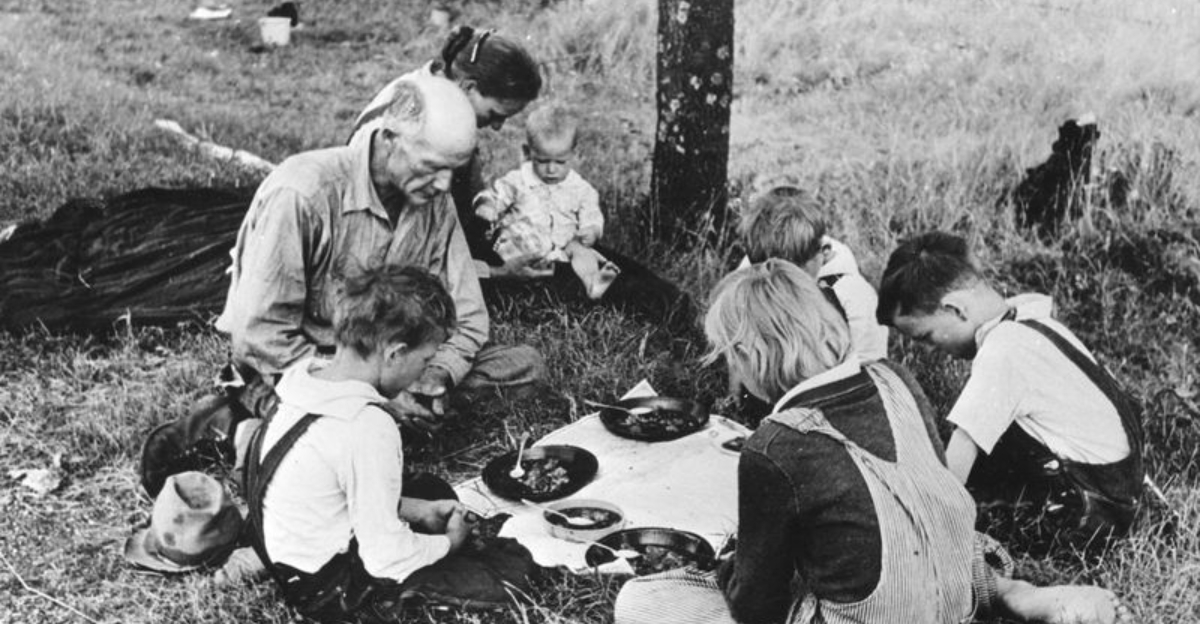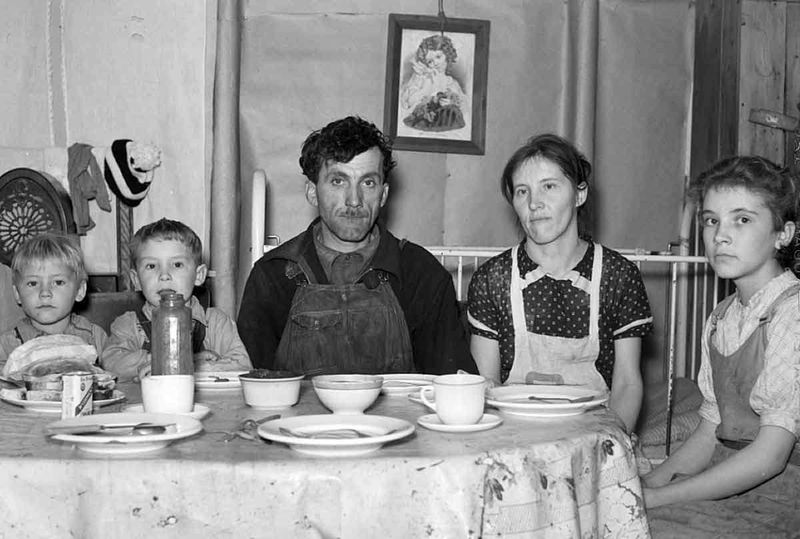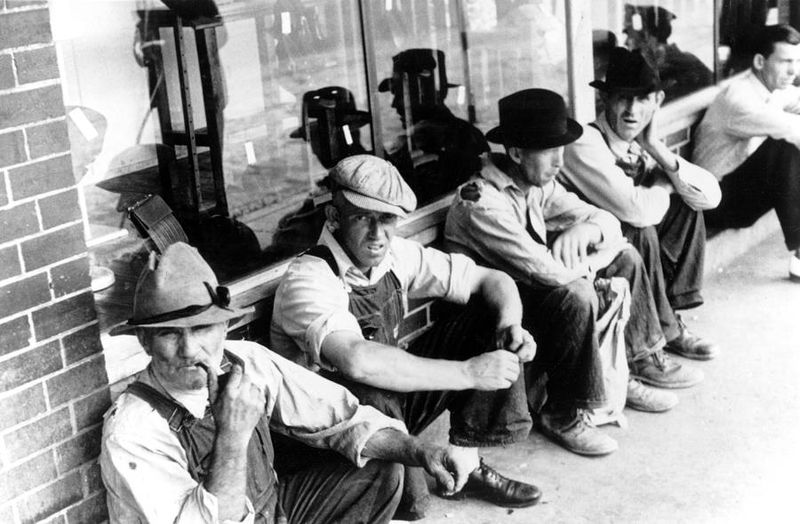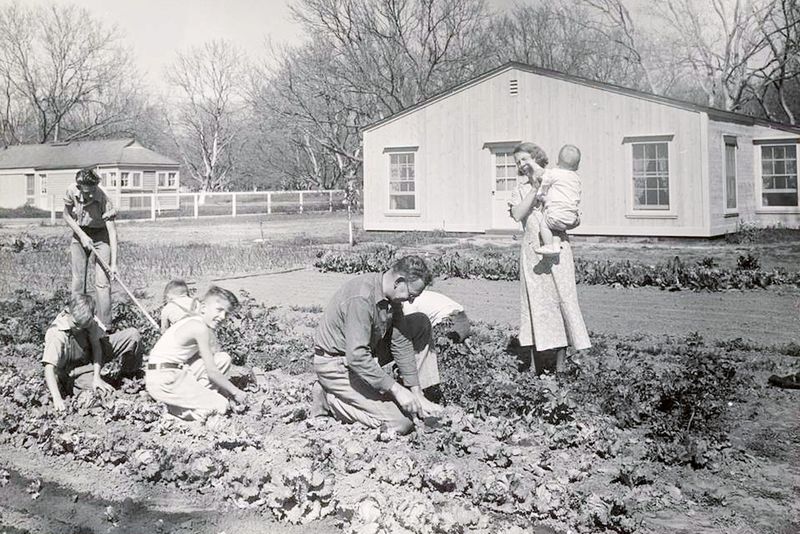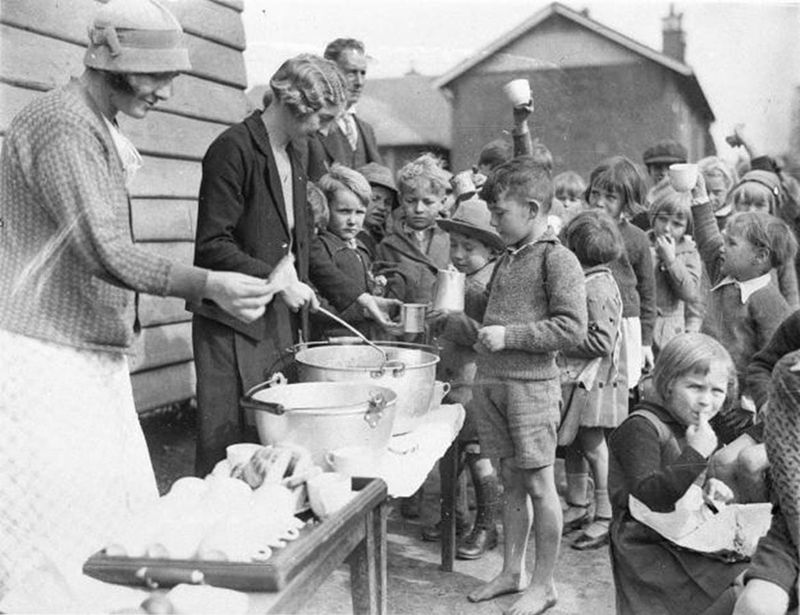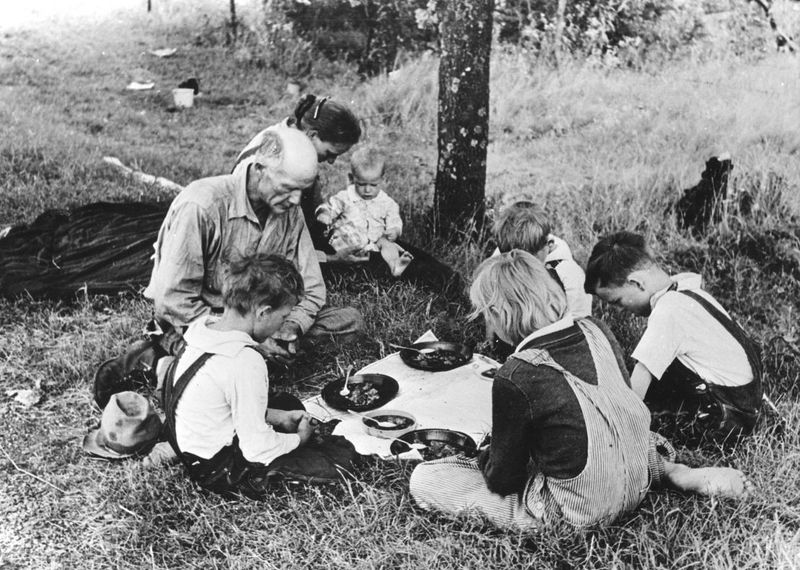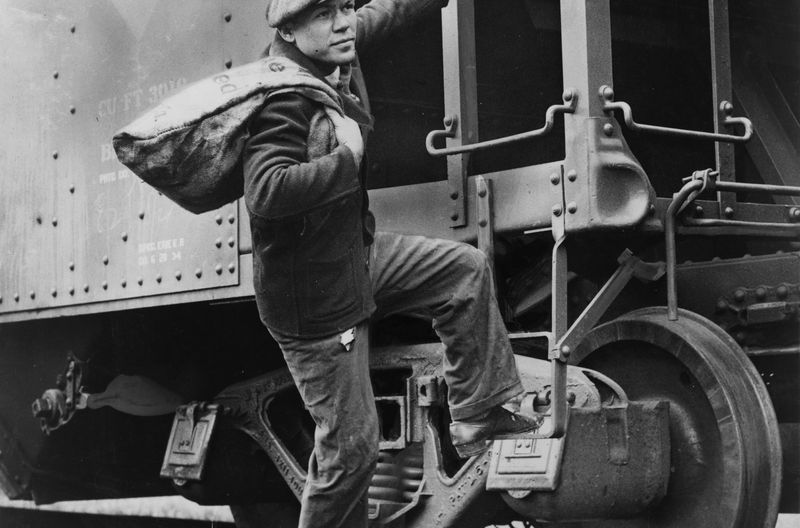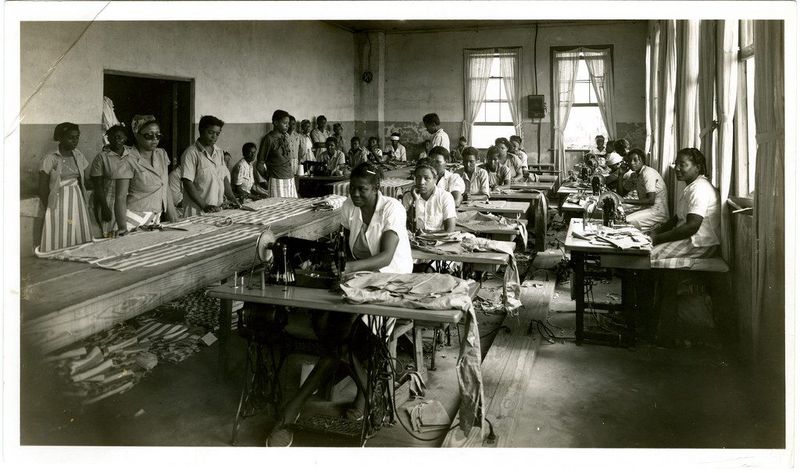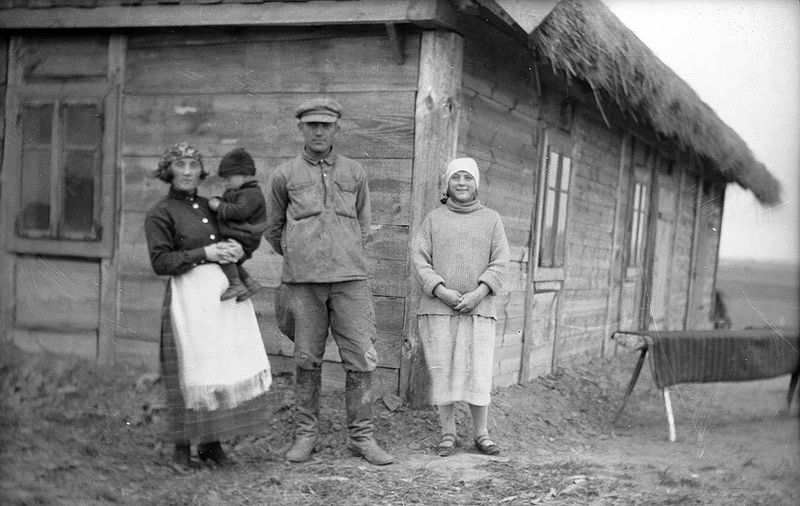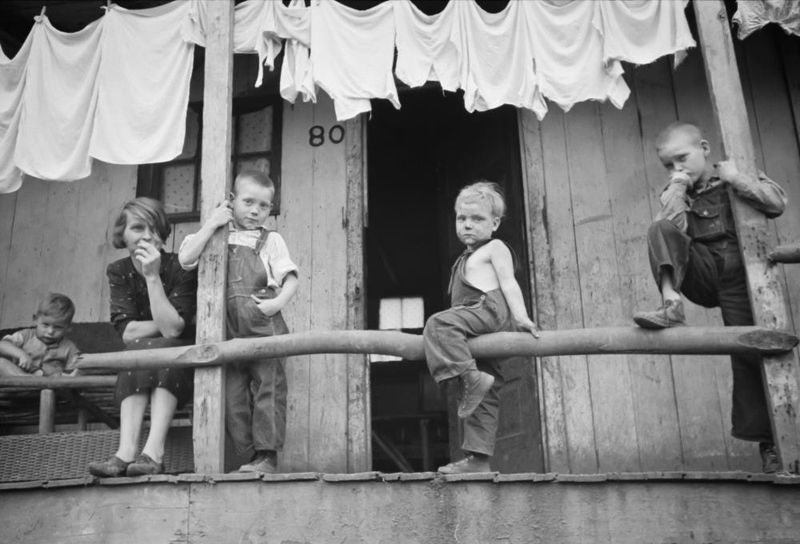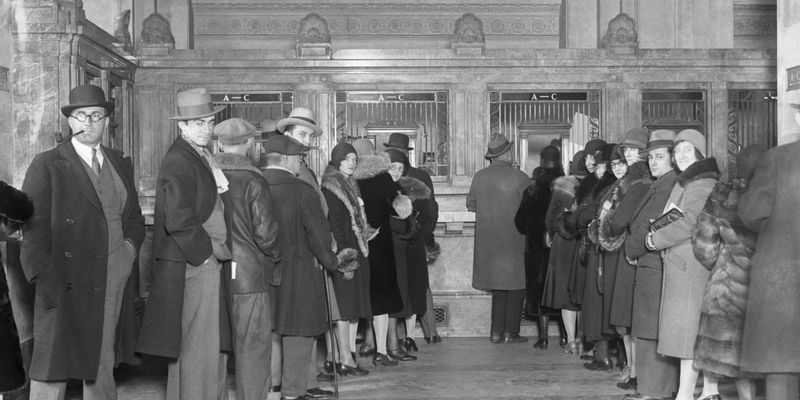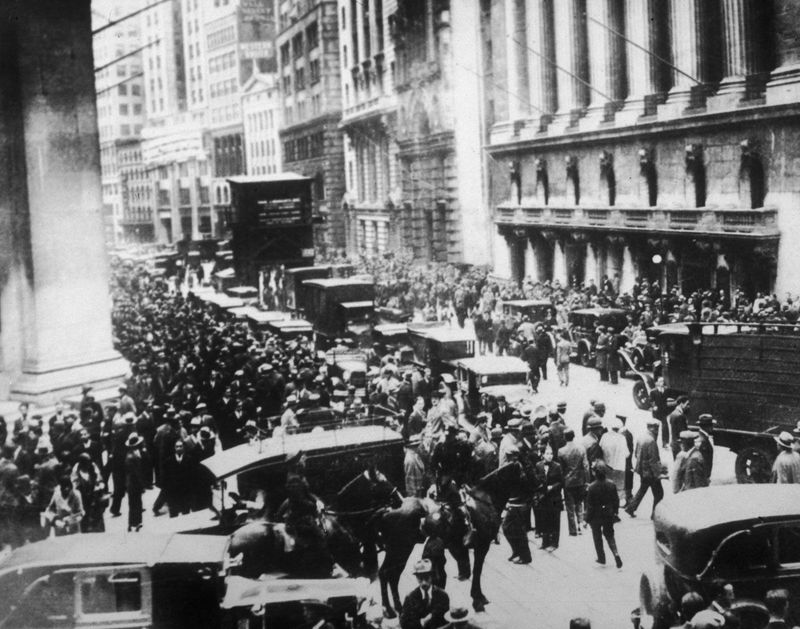The Great Depression wasn’t just an economic collapse—it was a national identity crisis. Between 1929 and the early 1940s, Americans faced unemployment, homelessness, and hunger on a massive scale. Out of that hardship came a language all its own: gritty, ironic, and darkly humorous. These sayings capture the daily struggle of those years, offering a window into the resilience, desperation, and hard-won wisdom of a generation that endured.
1. “Use it up, wear it out, make it do, or do without.”
A mantra for every Depression-era household, this saying emphasized thriftiness. Waste was not an option—every sock was darned, every meal stretched, every object reused. It wasn’t trendy minimalism; it was survival.
Families learned to adapt by turning scraps into meals and old clothes into quilts. This mindset wasn’t about choice but necessity, teaching resourcefulness in a time of scarcity.
During these trying times, creativity flourished in homes, transforming simple resources into something valuable. This saying taught many the importance of making the best of what you have.
2. “Brother, can you spare a dime?”
Originally a lyric from a 1932 song, “Brother, can you spare a dime?” became the unofficial anthem of the unemployed. Standing on street corners and soup lines, men would utter this with a mix of shame and hope.
During the Great Depression, this phrase symbolized the widespread desperation and longing for work. It captured the essence of a nation grappling with unprecedented unemployment.
Despite the bleakness, there was an underlying sense of solidarity among those suffering. Strangers became brothers in hardship, seeking small acts of kindness to survive.
3. “We ate what we could catch, grow, or beg for.”
Hunting rabbits, planting backyard gardens, or knocking on neighbors’ doors—necessity drove many actions during the Great Depression. If it filled the stomach, it was fair game. Pride often took a backseat to hunger.
Families became adept at growing their own food, turning small plots into bountiful gardens. Foraging and hunting supplemented meager meals, ensuring survival.
The community spirit thrived as neighbors shared produce and resources. This saying underscores the resilience and adaptability of people when faced with dire circumstances, emphasizing the importance of food security.
4. “Too poor to paint, too proud to whitewash.”
A sardonic take on rural poverty, this saying captured the dignity many held onto even when their homes (and wallets) were crumbling. It reflects the pride of those who refused to let hardship define them entirely.
Even as paint chipped and walls cracked, the spirit of resilience remained unbroken. The home stood as a testament to enduring strength.
This expression highlights the balance between pride and poverty, where keeping appearances became a silent act of rebellion. It teaches us about the stubborn dignity of those who endured without complaint.
5. “If the wolf’s at the door, invite him in—he’s probably hungry too.”
This dark joke masked a harsh truth: nearly everyone was in the same boat during the Great Depression. Compassion often came from shared suffering, as even the desperate could find empathy.
Communities often banded together, sharing what little they had. The saying reflects a time when kindness could be the only thing people had to offer.
Acknowledging the wolf at the door as a fellow sufferer turns adversity into a shared experience. It reminds us that empathy can be a powerful tool in the face of widespread hardship.
6. “Rode the rails.”
Tens of thousands of unemployed men and teens illegally hopped freight trains in search of work. It was dangerous and desperate—but for many, the only option.
This saying symbolizes the transient lifestyles adopted by those seeking opportunities far from home. It highlights the lengths to which people would go, driven by hope and necessity.
Riding the rails became a rite of passage for some, a testament to the resilience and adventurous spirit needed to survive. It paints a vivid picture of life on the move during hard times.
7. “Three hots and a flop.”
Slang for prison life—where at least you were guaranteed three hot meals and a place to sleep. For some, jail was a step up during the worst of the Depression.
This grim reality speaks to the desperation faced by many, where incarceration offered basic comforts absent in the outside world.
The saying highlights a tragic irony: freedom meant hunger and homelessness, while prison provided stability. It’s a stark reminder of the dire circumstances that led people to view prison as a refuge from poverty.
8. “A Hoover blanket.”
A bitter jab at President Herbert Hoover, “A Hoover blanket” referred to newspapers used by the homeless to keep warm at night. Other slights included “Hoovervilles” for shantytowns.
This saying highlights the disillusionment and blame placed on political leaders during the Depression. It reflects the widespread perception of governmental failure to address economic woes.
Newspapers, once sources of information, became symbols of destitution and survival. The term encapsulates the ingenuity born out of necessity, as people used whatever they could to endure the cold.
9. “We were so poor, we didn’t know we were poor.”
Used by those who grew up in rural or tight-knit communities where poverty was the norm, this saying speaks to the normalization of hardship.
Despite economic challenges, many found joy in simplicity and solidarity. The focus remained on family and community rather than material wealth.
This expression reflects a mindset where richness was measured in connections and shared experiences. It offers insight into a time when people found contentment in what they had, despite lacking modern comforts.
10. “Don’t throw that out—you might need it someday.”
Born in the Depression, this phrase haunted American households for decades. It led to basements full of jars, buttons, and bent nails—just in case.
The saying embodies the caution instilled by years of scarcity, where every item held potential future value. Nothing was truly disposable.
It created a culture of frugality that persisted long after the Depression ended, teaching future generations the importance of preparedness and resourcefulness. The phrase stands as a testament to the long-lasting impact of survival mentality.
11. “When the banks closed, so did our future.”
After thousands of banks failed, life savings vanished overnight. Families who’d scrimped and saved for years lost everything in the blink of an eye.
This saying captures the despair and uncertainty following bank closures. It marks a loss not just of money, but of dreams and security.
The expression serves as a cautionary tale of financial vulnerability, illustrating the fragility of economic stability. It reminds us of the importance of trust in financial institutions and the devastation that can follow its loss.
12. “He lost his shirt in the crash.”
This idiom outlived the Depression, but its roots lie in Wall Street’s collapse. Many lost their homes, businesses, and entire livelihoods—left with nothing but the clothes on their backs.
The phrase paints a vivid picture of financial ruin, where fortunes disappeared as stocks plummeted. It underscores the volatility of the market and the risks inherent in speculation.
This saying serves as a sobering reminder of the perils of economic highs and lows, emphasizing caution in investments. It’s a testament to the lasting impact of the crash on the American psyche.
